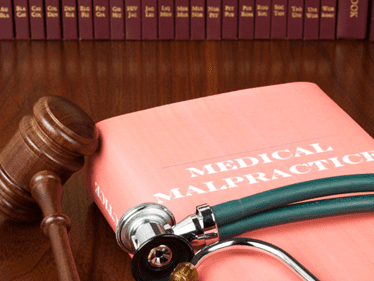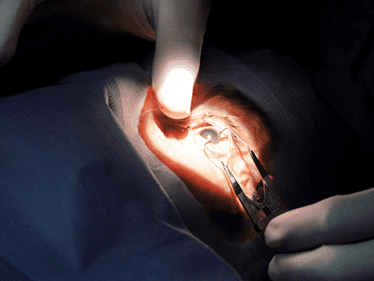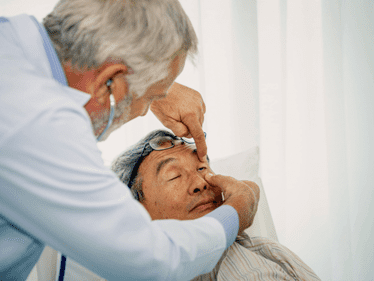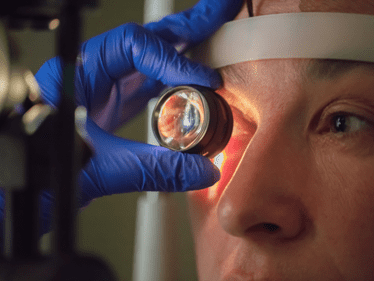Duluth Ophthalmologic Malpractice Lawyer

Our eyes are one of our most precious assets, enabling us to experience the world around us and connect with others. When we seek medical care for our eyes, we trust that our ophthalmologist will provide us with the highest standard of care and help us maintain our vision and eye health.
Unfortunately, this is not always the case. Ophthalmologic malpractice, also known as eye malpractice, occurs when a medical professional fails to provide a proper diagnosis, treatment, or follow-up care, resulting in injury or harm to the patient’s eyes. If you or a loved one has suffered from ophthalmologic malpractice in Duluth, Georgia, it’s important to seek help from a qualified and experienced ophthalmologic malpractice lawyer.
In this article, we will discuss the various types of malpractice cases that a lawyer can help you with, the steps involved in pursuing a medical malpractice case, tips for finding a good lawyer, and how to prepare for a malpractice case. Read on to learn more about how to protect your rights and get the compensation you deserve.
Types of Medical Malpractice Cases
In the state of Georgia, a medical malpractice lawyer can help you with various types of malpractice cases related to eye injuries and medical negligence, including:
● Medical negligence: A healthcare professional may fail to diagnose an eye condition in a timely manner, leading to severe vision loss or blindness. They may also prescribe the wrong medication or dosage, resulting in adverse side effects and harm to the patient’s eye health.
● Surgical errors: Eye surgeries such as cataract removal, LASIK, and glaucoma treatment require precision and expertise. Any error or complication during surgery can cause significant harm to the patient, including vision loss or blindness. Examples of surgical errors include the use of defective or unsanitary equipment, improper administration of anesthesia, and postoperative infections.
● Medication errors: Ophthalmologists may prescribe medication for a patient’s eye condition, but if the medication is administered improperly, or the wrong medication is prescribed, it can have severe consequences for the patient’s vision. A medication error may cause permanent damage to the optic nerve or other delicate parts of the eye.
A medical malpractice lawyer can help you with any of these types of malpractice cases. They can investigate your case, collect evidence, and hold the responsible parties accountable for their negligence, helping you get the compensation you deserve.
Steps in Representing a Malpractice Case

If you’ve suffered an eye injury or medical negligence at the hands of an ophthalmologist, an ophthalmologic malpractice lawyer can help you get the justice and compensation you deserve. Here are the different steps that a lawyer may take when representing a client in a malpractice case:
- Initial consultation: The first step is to schedule an initial consultation with an ophthalmologic malpractice lawyer. During the consultation, you can discuss the details of your case, and the lawyer will evaluate your claim and determine whether or not you have a viable case.
- Investigation and evidence gathering: Once you’ve hired a lawyer, they will begin investigating your case, gathering evidence, and reviewing medical records to determine the extent of your injuries and the negligence of the ophthalmologist.
- Filing the lawsuit: If your lawyer determines that you have a viable case, they will file a lawsuit on your behalf. The lawsuit will outline the specific allegations of negligence against the ophthalmologist and the damages you are seeking.
- Discovery: After filing the lawsuit, your lawyer and the ophthalmologist’s legal team will engage in the discovery process, where they exchange evidence and information relevant to the case. This process may include depositions, written interrogatories, and requests for documents.
- Settlement negotiations: In many malpractice cases, the two parties may engage in settlement negotiations to resolve the case before it goes to trial. Your lawyer will negotiate with the ophthalmologist’s legal team to reach a fair settlement offer that compensates you for your injuries.
- Trial: If a settlement cannot be reached, the case will proceed to trial. During the trial, both parties will present evidence and testimony, and the judge or jury will determine whether the ophthalmologist was negligent and whether you are entitled to compensation for your injuries.
A medical malpractice attorney will guide you through the entire process and fight for your rights and compensation every step of the way. Scholle Law has experience in representing victims of all types of malpractice cases and has a proven track record of success in securing compensation for its clients.
Tips for Finding a Ophthalmologic Malpractice Lawyer

Finding the right ophthalmologic malpractice lawyer to represent you in your case can be a daunting task, but it’s an essential step toward ensuring that you receive the justice and compensation you deserve. Here are some tips to help you find the right lawyer for your case:
● Do your research: Start by researching different law firms in your area that specialize in personal injury and medical malpractice cases. Look for firms with a proven track record of success in representing victims of ophthalmologic malpractice.
● Check online reviews: Look up the law firms you’re considering on websites such as Google, Yelp, and Avvo, and read their reviews from past clients. Pay attention to the overall rating and specific comments about the quality of the firm’s legal representation and communication.
● Get referrals: Ask friends and family members if they know of any reputable personal injury or medical malpractice attorney in your area. Referrals from people you trust can help you narrow down your search and find a lawyer with a proven track record of success.
● Schedule consultations: Schedule consultations with two or three law firms that you’ve researched and received referrals for. During the consultation, ask the lawyer about their experience handling ophthalmologic malpractice cases and their success rate in securing compensation for their clients.
● Consider their approach: When choosing a lawyer, consider their approach to representing clients. You’ll want to find a lawyer who is experienced, knowledgeable, and compassionate, and who will fight tirelessly for your rights and compensation.
By following these tips, you can find a ophthalmologic malpractice lawyer who can help you navigate the complexities of the legal system and help you get the justice and compensation you deserve.
Scholle Law has a reputation for providing quality legal representation to its clients and has helped many victims of ophthalmologic malpractice recover the compensation they deserve.
Advice on How to Prepare for a Malpractice Case

If you’re planning to file a medical malpractice lawsuit, it’s essential to prepare your case carefully. Here are some tips to help you prepare for a successful case:
● Gather evidence: Collect all the relevant documents related to your case, including your medical records, prescriptions, bills, and any other documentation related to your treatment. These documents will be essential in establishing the facts of your case and proving your injuries and damages.
● Know the law: It’s important to have a basic understanding of the relevant Georgia state laws that pertain to medical malpractice cases. An experienced medical malpractice lawyer can help you understand these laws and how they apply to your case.
● Be honest: Always be honest and upfront with your lawyer about your medical history, your current symptoms, and any pre-existing conditions that may be relevant to your case. Your lawyer needs to have a complete and accurate picture of your medical records to build a strong case.
● Follow your doctor’s orders: It’s essential to follow your doctor’s orders and attend all follow-up appointments and treatments as prescribed. This will help you establish a clear medical record and demonstrate that you are taking reasonable steps to recover from your injuries.
● Keep records: Keep detailed records of all medical treatments, expenses, and lost wages related to your serious injury. These records will help your lawyer establish the extent of your damages and negotiate a fair settlement or pursue maximum compensation in court.
By following these tips, you can help your medical malpractice attorney build a strong case and increase your chances of recovering the compensation you deserve. At Scholle Law, our experienced lawyers can guide you through the process of preparing your case and help you navigate the complexities of the legal system.
Key Points

In summary, here are the key points to keep in mind when seeking the services of an ophthalmologic medical malpractice lawyer:
● An ophthalmologic medical malpractice lawyer is a legal professional who specializes in helping victims of medical malpractice and negligence in the state of Georgia.
● Types of malpractice cases that a medical malpractice lawyer can handle include misdiagnosis, surgical errors, medication errors, and failure to diagnose, among others.
● The steps that a medical malpractice attorney takes when representing a client in a malpractice case typically include gathering evidence, filing a lawsuit, and negotiating a settlement or pursuing maximum compensation in court.
● To find a medical malpractice attorney, it’s important to check online reviews, ask friends or family for recommendations, and look for a medical malpractice lawyer with experience and a track record of success.
● When preparing for a malpractice case, it’s essential to gather evidence, know the relevant Georgia state laws, be honest with your medical malpractice lawyer, follow your doctor’s orders, and keep detailed records of all medical treatments, expenses, and lost wages related to your injury.
● During litigation, it’s important to be patient and prepare for a long legal process. Possible outcomes of a malpractice case may include a settlement, an award of damages, or a dismissal of the case.
By keeping these key points in mind, you can make an informed decision about whether to pursue a malpractice case and take the necessary steps to protect your legal rights.
Final Verdict

In conclusion, if you’ve been injured by a negligent or reckless ophthalmologist in Duluth, Georgia, it’s essential to seek help from a qualified ophthalmologic medical malpractice lawyer. By engaging the right legal services, you can protect your rights, pursue maximum compensation for your injuries and damages, and hold the responsible parties accountable.
At Scholle Law, our experienced team of personal injury lawyers has a proven track record of success in handling a wide range of malpractice cases in Georgia. We offer personalized attention to each of our clients and work tirelessly to ensure that they receive suitable legal representation and the maximum compensation to which they are entitled.
If you or a loved one has been injured due to ophthalmologic malpractice in Duluth, contact us today to schedule a free consultation. We will review your case, answer your questions, and help you understand your legal options. Remember, time is of the essence in filing a malpractice case in Georgia, so don’t delay in seeking legal help.
Thank you for reading this article on the importance of hiring an ophthalmologic malpractice
Frequently Asked Questions

What are the specific qualifications of Duluth Medical Malpractice Lawyers regarding Ophthalmology Malpractice?
Duluth medical malpractice attorneys have specific qualifications when it comes to ophthalmology malpractice. They are knowledgeable in the laws and regulations about medical malpractice cases, as well as the general principles of medical negligence law. They also understand the special rules that apply in ophthalmology malpractice cases, such as understanding when medical mistakes happen such as when eye doctors misdiagnosed a condition or prescribed an incorrect treatment plan. They will be knowledgeable about the applicable standards of care in ophthalmology and what constitutes a breach of those standards. Finally, they will have experience in effectively representing clients in ophthalmology malpractice cases.
Should I seek a primary care physician or an eye doctor if I believe I have a medical malpractice claim?
If you believe you have a medical malpractice claim, it is important to seek the advice of an experienced attorney. Scholle Law has a long history of successfully representing clients in medical malpractice cases. Depending on the type of injury sustained, it may be necessary to visit both a primary care physician and an eye doctor. A primary care physician can assess general medical issues, while an eye doctor can diagnose and treat more specific eye-related conditions. It is important to seek the right professional advice so that you can ensure the possible outcome for your case.
How can medical professionals help protect themselves from potential lawsuits related to ophthalmology malpractice?
Medical professionals can help protect themselves from potential lawsuits related to ophthalmology malpractice by taking proactive steps. Firstly, they should practice the best medicine possible and reduce risk where possible. Secondly, they should be clear and consistent in their communication with patients and hone their listening skills to make sure they are hearing the patient’s needs. Thirdly, they should ensure that patients are properly oriented to staff, equipment, and unit routines. Finally, they must be aware of how their actions might be perceived by the patient and avoid discussing legal proceedings with them. Ultimately, taking these proactive steps will help medical professionals protect themselves from potential malpractice lawsuits related to ophthalmology.
Do Duluth Medical Malpractice Lawyers offer free initial consultation for potential clients?
Yes, Duluth Medical Malpractice Lawyers, such as Scholle Law, offer free consultation for potential clients. During this free consultation, the lawyer will go over the details of the case to get a better understanding of what happened and how they can help. They will also provide an overview of what options are available to the client and what the process of seeking compensation may look like.
How should patients handle the payment of medical bills in cases of ophthalmology malpractice?
Patients should discuss any concerns about the financial burden they suffered due to ophthalmology malpractice with their healthcare provider. They should also be informed about their legal rights and the available insurance coverage to protect them from financial losses in case of a medical malpractice occurrence. Additionally, they should research and compare medical malpractice insurance plans to find the most suitable one for their needs. Patients must understand the terms of their policy and claim process before signing any documents.
Are personal injury clients eligible for legal advice from Duluth Medical Malpractice Attorney regarding their medical malpractice claims?
Yes, a Duluth Medical Malpractice Attorney can provide legal advice to personal injury clients with medical malpractice claims including wrongful death claims. The attorneys at Scholle Law are experienced and knowledgeable in all aspects of medical malpractice law, from pre-litigation advice to trial representation. With their extensive experience and expertise, they can provide personalized legal guidance and advocacy tailored to each client’s needs.
Can compensation be provided to victims due to errors made by medical professionals in ophthalmology practices?
Compensation for victims of medical errors can be provided in certain cases. In the case of ophthalmology practices, victims of medical negligence may be eligible for compensation depending on the nature and severity of the error. They can also claim for non-economic damages they suffered, such as mental anguish. Victims should contact their local medical authorities or consult a lawyer to determine if they are eligible for any financial compensation. It is important to note that compensation is not always guaranteed and will depend on the circumstances. Victims should always be aware of their rights and seek legal advice when necessary.
Is there a statute of limitations that applies to filing a claim with a Duluth Medical Malpractice Lawyer for ophthalmic malpractice cases?
In Duluth, the statute of limitations for filing a medical malpractice claim with a Duluth Medical Malpractice Lawyer for ophthalmic malpractice cases is four years. This means that a plaintiff must file their claim within four years of the date of the incident or else they will be unable to pursue legal action. It is important to note that this time frame may be extended if certain extenuating circumstances apply. If you think you may have a case, it is essential to contact an experienced lawyer as soon as possible.
What is the top legal advice given by Duluth Ophthalmologic Malpractice Lawyers when pursuing an ophthalmic malpractice case?
The top legal advice given by Duluth Ophthalmologic Malpractice Lawyers when pursuing an ophthalmic malpractice case is to contact a qualified attorney with experience in medical malpractice law. An experienced attorney like at Scholle Law can help you understand your rights and the legal process, evaluate your case, and ensure that you receive the financial compensation you deserve. It is also important to keep detailed records of all documents related to your case and any medical treatment or medical procedure that you have had related to the malpractice. Lastly, make sure you are aware of any deadlines associated with filing a claim.
Are there any standards set forth by law about preventable medical errors involving an ophthalmologist’s practice and its effects?
Yes, there are standards set forth by law about preventable medical errors involving an ophthalmologist’s practice. These standards are designed to protect patient safety and reduce the risk of doctor errors. The standards focus on ensuring that ophthalmologists are properly trained, have the necessary equipment and supplies on hand, and take the necessary steps to ensure that all procedures are performed safely and accurately. The effects of preventable medical errors can be devastating for patients and their families, so ophthalmologists need to adhere to these standards to provide the most suitable care for their patients.
